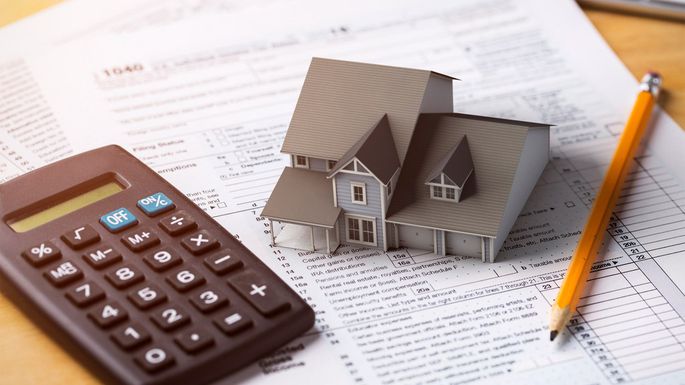You probably heard of real estate taxes if you're a homeowner. Taxes on real estate are perfectly acceptable in place of income taxes. People may not be aware of the differences between the two taxes.
Even though you may be disappointed to get your "property tax" bill or statement, which details the annual tax, you must pay or the amount your mortgage lender will pay on your behalf, both are necessary and important pieces of information.
Having a mortgage means having to pay this every month. The name "property" itself is misleading, as there is also a tax on "personal property."
The Taxation of Real Property

Households are responsible for paying real estate taxes each year based on their home's assessed value. The real estate tax rate is calculated by multiplying the property's fair market value by the localized percentage used to assess properties in each city and state.
Have you ever heard someone groan about the exorbitant expense of real estate taxes where they live? This is what they mean; more prominent cities like New York and Los Angeles often have higher tax rates.
Both the market value of your house and its location will affect the amount of real estate tax you must pay. For instance, property taxes in a small town in Oklahoma are probably far more reasonable than those in a trendy coastal city or a large Midwestern or Eastern hub like Dallas or Chicago.
Methods Used To Calculate Property Taxes

If the proportion set by your municipality is 65% and your home's fair market value is $350,000, the amount subject to taxation would be $227,500. To put it another way, if your area's taxation rate is 3%, the annual real estate tax bill would be $6,825.
If the property tax rate in your room were 8%, the account for a home of the same value as yours would be $18,200. The importance of a suitable locale cannot be overstated.
How Are Taxes on Intangible Assets Defined?
A real estate tax is another tax on privately owned land and buildings. Things that aren't fixed to the ground are considered personal property. One form of property tax is the annual registration fee for a motor vehicle, regarded as private property.
The value of all of these items, which may be moved around, is subject to a personal property tax in the same manner as your home's value. Unlike traditional homes, mobile homes are considered personal property rather than real estate for tax purposes.
People live in them the same way they would in a house, but they are technically mobile. However, if you own the property on which your mobile home sits, you will be subject to real estate taxes on the land's assessed value.
The amount of personal property tax you must pay depends on the assessed value of your possessions, the current individual property tax rate in your municipality, and the assessed value of similar possessions in your area.
Property Taxes: Why They're Different for Land and Contents
Let it be enough to remark that taxes on real estate are far higher than those on personal property. The average yearly cost to register a vehicle between $20,000 and $60,000 is about $40 to $75. Increases in the assessed valuation and the tax rate for a house are significant.
The real estate tax on even a moderately priced home in the cheapest state in the USA is likely to cost several hundred dollars. If you itemize your federal return deductions, you can subtract the taxes you paid on your boat or RV. This is because both the value of your personal property and the rate at which it is taxed are often lower than the value of your house.
The Verdict
Taxes on real estate and personal property are distinct, despite their similarities. The real estate tax is the amount demanded by the government from you, depending on the worth of your house. The rate for personal property is used on movable objects such as automobiles, commercial machinery, and household furnishings.
It's possible to get confused about which types of taxes apply to personal property vs. real estate. To put it simply, a mobile home is considered personal property if its owner does not also own the land it sits on.
A real estate tax is on the ground if the mobile home owner also owns it. If you've been confused by tax statements and invoices that refer to real estate and "personality property," you should be able to grasp them better now that you know the difference.
watch next


